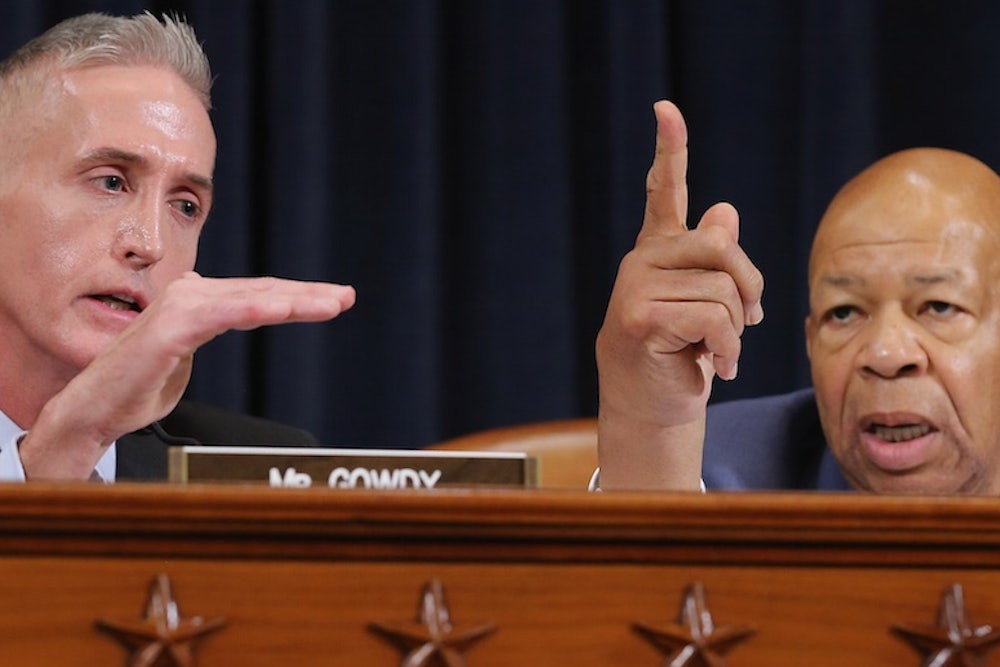The idea that Congress needed to create a committee last year on the 2012 attacks in Benghazi, Libya, was fairly absurd to begin with, because the events were already well understood.
But to the extent that members of the House Select Committee on Benghazi have a genuine interest in backfilling remaining gaps, they did their best to hide it at Thursday's hearing. Over the many hours they spent questioning Hillary Clinton, almost nobody in either party drilled down into the nominal purpose of the hearing. Those who did were generally Democrats. Indeed, Republicans spent far more of their time corroborating the widely shared view that the committee was empaneled to harm Clinton’s presidential candidacy than trying to ascertain why the attacks in Benghazi happened.
Other valid areas of inquiry—whether our military operation in Libya was legal or wise, whether it worked, whether there was a worthy reason to have diplomats and intelligence officers in Benghazi, how much our Libya policy is to blame for the failure of that state—were also subordinated beneath questions about her friendship with Sidney Blumenthal, and whether she had public relations aides who sought to make her look good in the press.
Nobody was surprised by this. The hearing, much like the Benghazi committee itself, wasn’t meant to be above-board. And with Clinton now through the gauntlet, and the committee denuded, Democrats should announce that they will boycott it going forward.
If the hearing went off the rails when chairman Trey Gowdy lost control halfway through, it crashed into a gutter of cynicism shortly thereafter when Clinton caught Illinois Representative Peter Roskam selectively quoting from one of her emails.
Roskam’s intent was to make Clinton appear improperly obsessed with the limelight. As it turns out, Clinton had actually sought to spread credit broadly for what was then believed to be a successful Libya policy. But even if Roskam had been right, it’d be impossible to construe his critique as something that prefigured Benghazi. Undaunted, Roskam concluded his remarks with a naked political attack on Clinton, saying her foreign policy doctrine was "to take a victory lap … and then turn your attention to other things."
Clinton called him out for that misstep, too.
"That is only a political statement," she scolded. "And I don’t understand why that has anything to do with what we are supposed to be talking about today."
The argument against boycotting the committee is straightforward and reasonable. Without Democrats on hand to provide a modest check, the committee’s Republicans will be unconstrained, and nobody will be able to neutralize their selective leaks. Or perhaps the boycott should be partial, so that Democrats like ranking member Elijah Cummings will be on hand to monitor the majority, but so that it’s also clear that Democrats aren’t a party to the larger farce.
If and when the committee issues its final report, Republicans will try to sweep all the dirty tricks that preceded it under the rug. There’s no reason Democrats should want their names on a consensus report, given the way the committee has conducted itself. The Democrats on the committee have been clear that it should be disbanded. They should suffuse that vote of no confidence with symbolic heft by walking out.
